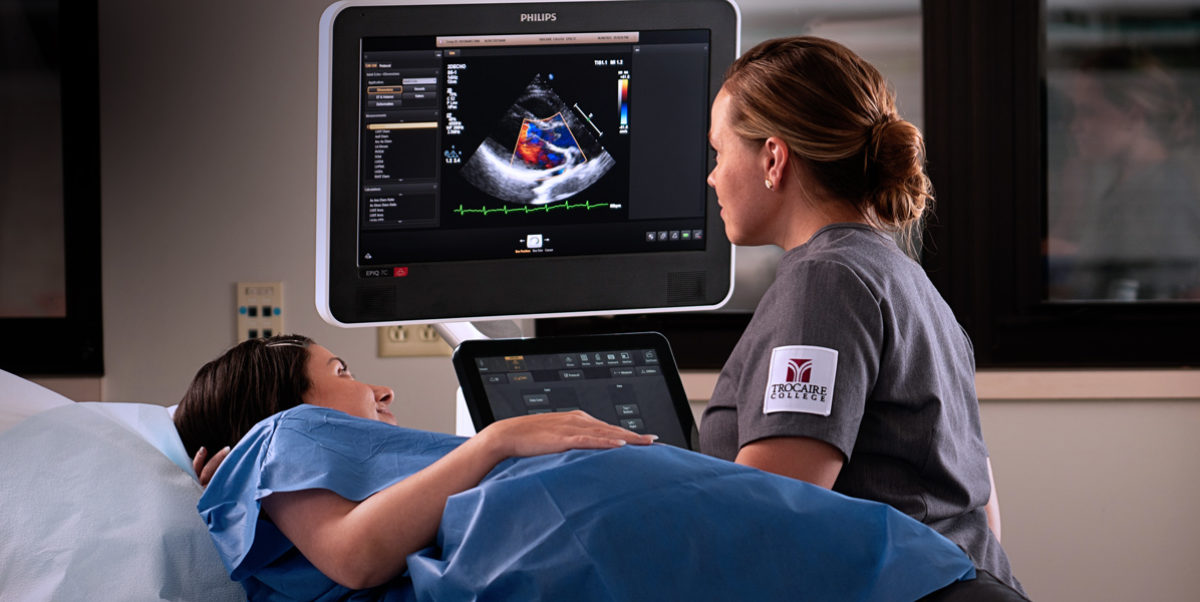Echocardiography

Certificate Program
Division of Allied Health and Professions | Medical Imaging
Echocardiography is a specialized concentration within the field of ultrasound applied to heart structures. The cardiac sonographer is a skilled person qualified by academic and clinical preparation to perform echocardiography exams under the supervision of a qualified physician. The demands of the cardiac sonographer requires a working knowledge of detailed anatomy and physiology of the heart and its echogenic appearance as it is presented as a 2-D image, as well as scanning techniques to obtain the optimum image.
The program of study includes thirty-six (36) credit hours of didactic, college laboratory and clinical sessions. Upon successful completion of the program, the graduate is eligible to sit for the American Registry of Diagnostic Medical Sonography Certifying Examinations for Cardiovascular Principles and Instrumentation, Adult and Pediatric Echocardiography.
Trocaire has established opportunities for student recognition and career networking, including:
Lambda Nu – the National Honor Society for the radiologic and imaging sciences. The Trocaire Chapter, New York Beta, recognizes outstanding students who have demonstrated exemplary scholarship and dedication to their chosen profession.
Certificate: Echocardiography
Program Format
Time of Program: Evening classes/Day clinical
Mode of Delivery: On-site/Seated

